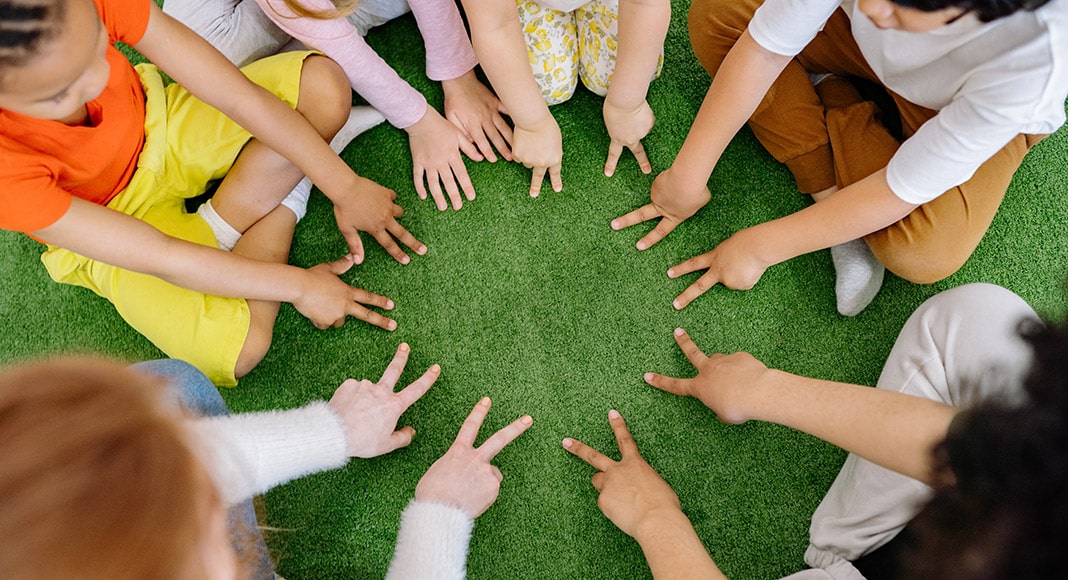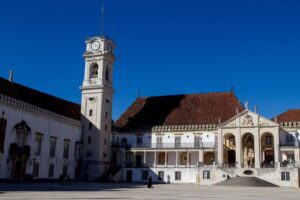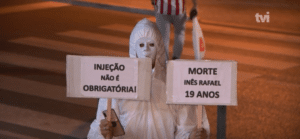Algarve judge rules in favour of battling parents
Child psychiatrist Pedro Caldeira da Silva came out this week defending the urgent need to “find a way of freeing children” from the damaging psychology perpetuated through the pandemic.
His intervention came as parents, researchers and even judges are showing patience for continuing restrictive measures in the name of SARS-CoV-2 is running thin.
In the Algarve, for example, a movement of parents is growing that has already succeeded in winning an injunction against the mask mandate at a local secondary school (see below).
But elsewhere too, the mood is changing.
Specialists have told Expresso the time has come to move away from the doom-laden daily bulletins which count cases that are becoming increasingly irrelevant (as the vast majority of them have little or no symptoms).
Gustavo Tato Borges, president of the national association of public health doctors (ANMSP), predicts that “from spring or autumn, Covid-19 will become integrated into the weekly flu bulletin, dispensing with daily vigilance and focus on cases. It will be a normal winter illness”.
In this scenario, the “insistence” that children should have to continue going to school in masks is looking “more and more heavy-handed”. Many parents are simply not prepared to take it any longer. Some have opted to remove their children from mainstream education; others to challenge the system and highlight the loopholes.
In the Algarve, it has been a case of the latter.
In the first few days of 2022, the Loulé Tax and Administrative Court granted a preliminary injunction in favour of two parents of high school students attending the EB 2/3 de Aljezur school.
One of them filed a preliminary injunction to try and ensure their two children could return to classes after the extended holidays without the requirement to wear masks.
The bid presented “dozens of peer-reviewed studies showing that wearing masks does not stop viral transmission”. It also referred the court to studies on the “negative effects of wearing masks on children’s mental and physical health”.
When the injunction was granted, other parents who had been too worried to “come on board” for fear of reprisals began to take an interest.
Early in the morning of Monday, January 10 – hours before the school gates opened for the new academic year – the parents who won the injunction received an email from the Ministry of Education, in the form of a “reasoned resolution” (resolução fundamentada).
The reasoned resolution essentially suspended the power of the injunction, citing “public interest”.
In a nutshell, the ministry said it was concerned that other parents at the school might be afraid if certain children attended unmasked, as they might feel that their own children would be “at greater risk”.
The lawyer who brought the case travelled down to Aljezur before filing his response to the court to meet with the parents.
He told the Resident he expects a conclusion from Loulé court within “two to three weeks” – and “hopes it will be in favour of the parents”. The judge agreed with their evidence the first time – and the Ministry of Education did not refute it, it simply suggested that “other people might get upset” …
The Lisbon-based lawyer told us that he has been representing parents and others who have questioned the legality of various measures since the start of the pandemic.
Specialising in administrative and constitutional law, he explains the measures, particularly in terms of masks, “are recommendations and not obligations. There is no legal basis for imposing them on others – and we are not in the grip of a pandemic in which large numbers of people are dying. There is no health emergency right now. Continuing to insist that children learn and spend so many hours of the day wearing masks is beyond reasonable.”
In Lisbon, several parents have taken precautionary measures in defence of their children’s rights to go to school unmasked – and these children are now doing so.
These system challenges do not tend to receive exposure in the press, but they are happening all the time.
The lawyer, who has no interest in becoming a public figure, is fully occupied by what he calls cases of “abuse of power of public office”, whether they occur in schools or elsewhere.
His clients are not “conspiracy theorists”, he insists. They are “serious people making their own decisions, in this case, in the interests of their children”.
A Portuguese national himself, the lawyer told us: “It helps that the injunction in Aljezur was filed by a foreign citizen. The Portuguese mentality can be a little too closed. People accept too much. Foreigners are more open-minded; they can be braver. In this case, it started with foreigners and now the Portuguese parents have become involved. I can only see it growing.”
For now, the parents (of children aged 11 and 12) have to wait for the Loulé Court to respond. They are “determined”. Indeed, the decision to take legal action only came after “many email discussions with the school principal”.
As thinking on restrictions, particularly with regards to children, shifts, researchers have reported that 58% of parents believe their children will never recover the education lost through ‘measures to control the pandemic’.
Child psychiatrist Caldeira da Silva is more optimistic. “It’s an exaggeration,” he told Lusa, particularly as it suggests “families are incompetent, and that only school can give adequate stimulation, which is something I do not believe in”.
But the time is long overdue for releasing children “from all the fears and fuss of contagions”, he insisted.
Parents need to “start filtering the reality”. Covid-19 “is not a terrible threat that will never end and will always be hanging over us but that a fact of life”, he stressed – something we have to cope with, just as we cope with “car accidents and illnesses like the flu, cancer or malaria.”
As for the press, Caldeira da Silva said it should be “leading the way”, “giving perspective”, instead of what has boiled down to pharmaceutical propaganda.
By NATASHA DONN
natasha.donn@algarveresident.com


























